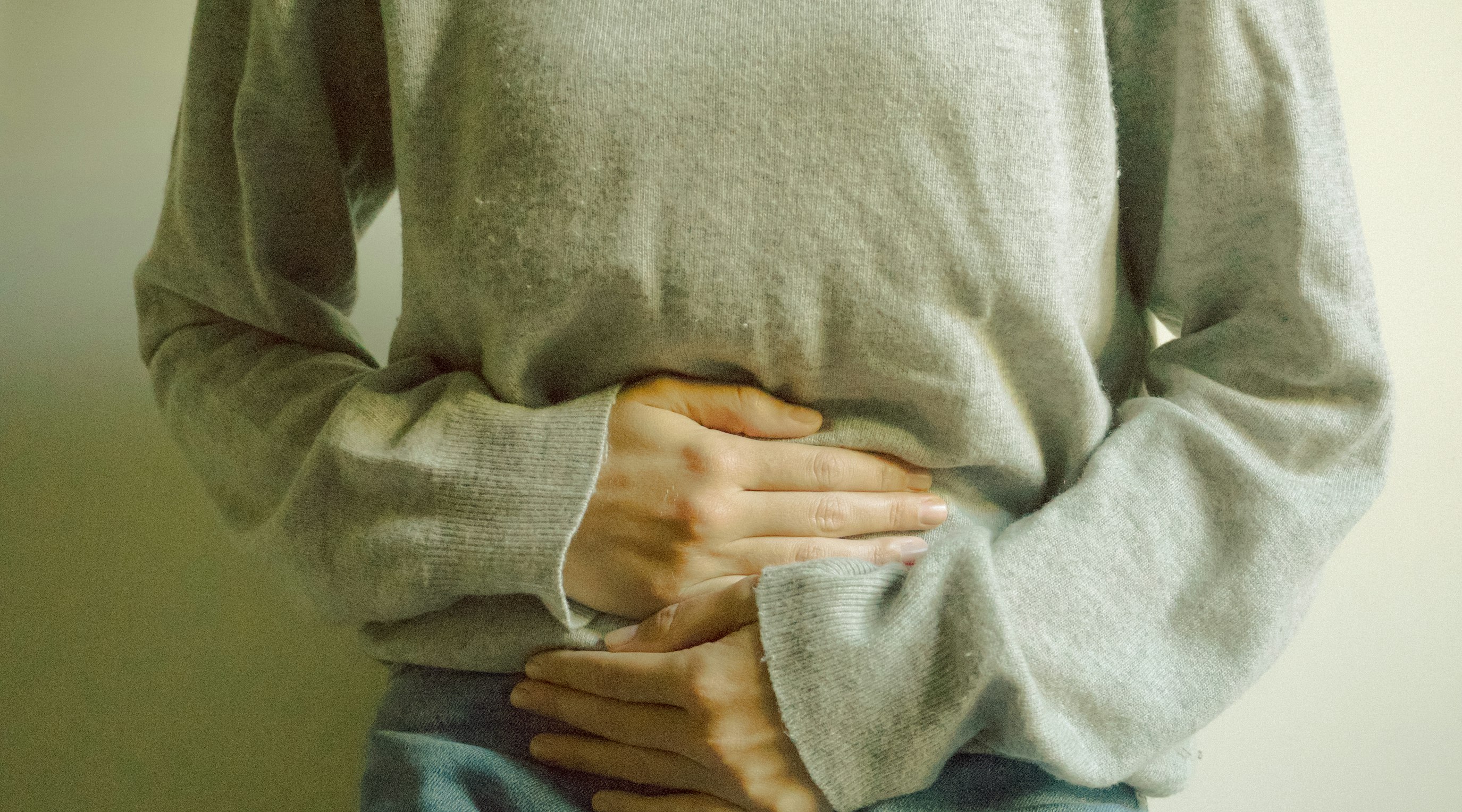Does CBD offer a natural solution for bladder pain?
8 min read
Kerry Charron
Bladder pain, or interstitial cystitis, can be annoying, even sometimes debilitating issue. Sometimes described by sufferers as having a similar feeling to dealing with a never-ending UTI (urinary tract infection), it mostly affects women over the age of 40. With a list of symptoms ranging from the urge to urinate almost constantly with little success, to crippling pelvic pain, it should come as little wonder that sufferers are constantly on the lookout for new additions to their current treatment plan.
Contents
CBD, or cannabidiol, is a compound produced by medical cannabis. It is leading the most recent charge in new, natural, and possibly effective treatment options for bladder pain. Recent research is highlighting the potential that CBD may hold in reducing the pain itself, and other associated bladder pain symptoms. This article will review how CBD may work to reduce bladder pain and provide additional wellness benefits.
How bad can bladder pain get?
Bladder pain can be incredibly uncomfortable and inconvenient. It is a chronic condition that can flare up with little warning, and when it does, it has the marked ability to decrease the quality of life for people suffering from the issue. Pain seems to increase as the urine builds in the bladder, but the act of urination is often difficult, with patients having trouble expelling all the urine held in the bladder. This form of chronic pain can be disruptive to one’s daily routine and sleep, and it may trigger other symptoms like anxiety and gastrointestinal issues.
The importance of exploring CBD as a potential treatment for bladder pain
CBD has been shown to offer potential pain relief and anti-inflammatory action. Since an increasing number of studies have indicated that CBD is safe and effective, many bladder pain patients are exploring cannabinoid treatment. CBD also offers multiple possible benefits to support overall wellness while reducing pain, inflammation, and nausea.
How CBD works
CBD is a phytocannabinoid produced in large quantities by both hemp and cannabis plants. It has the ability to interact with the receptors in the endocannabinoid system, as well as other regulatory systems within humans. It is through these interactions that CBD may offer the potential to reduce inflammation and pain associated with bladder discomfort.
Before we go any further, let's have a deeper look into how these interactions work in a more exact manner.
The endocannabinoid system
The endocannabinoid system (ECS) was only first discovered in 1988, but since that time, researchers have uncovered just how important this regulatory system truly is. The ECS is the largest regulatory system in humans (and all mammals), and is thought to be in charge of overall homeostasis, or balance.
It is made of three main components – receptors, enzymes, and endocannabinoids. Endocannabinoids are the body’s own form of cannabinoids that exist naturally in humans to help regulate physiological processes such as inflammation, pain, and more. The two most prominent endocannabinoids are Anandamide (AEA) and 2-arachidonoylglycerol (2-AG).
While researchers believe there may be more receptors still waiting to be discovered, at this point, we have found two receptor types that are integral to the functioning of the ECS. The first is CB1, which is mostly found in the central nervous system. The other is CB2, which is located mainly in the peripheral nervous system and immune cells.
CBD has been shown to (weakly) interact with both CB1 and CB2 receptors, which is believed to contribute to its potential anti-inflammatory and analgesic (pain relief) effects. It has also been shown to potentially reduce the breakdown of our own endocannabinoids, which may increase the number of endocannabinoids interacting with both the CB1 and CB2 receptors, thus amplifying their regulatory and possible therapeutic effects.
In addition to interacting with our ECS, CBD may also offer the potential to interact with other receptors in the body, such as those that regulate serotonin and dopamine production. It has also been shown to be able to interact with vanilloid and adenosine receptors, both of which are involved in pain regulation.
Finally, CBD may offer the potential to reduce inflammation by modulating cytokine production and reducing the activity of T cells. Cytokines are proteins that help with cell signalling, and T cells are an important part of the immune system.
Research on CBD for bladder pain
Studies have examined patient attitudes towards CBD use for painful bladder syndrome (PBS) and interstitial cystitis (IC). This study, while not focusing on CBD treatment in particular, does highlight patient expectations and approaches to self-management of symptoms using a structured care plan. Patients wanted to minimize treatment side effects by limiting prescription medications and avoiding surgical options. This is where CBD may be able to help.
One review of several CBD studies, titled “Cannabidiol as a Promising Therapeutic Option in IC/BPS: In Vitro Evaluation of Its Protective Effects against Inflammation and Oxidative Stress” provides new insights into the therapeutic potential of CBD through modulation of pain signalling pathways, and concludes that CBD may be a potent ally in the battle against the chronic pain associated with bladder issues.
While the body of research into CBD and bladder pain specifically is still in its infancy, there are plenty of supplemental studies that go into great detail regarding the potential effectiveness of CBD in reducing pain and inflammation.
How does CBD stack up against current conventional treatment options?
CBD offers a gentle alternative with less serious side effects than some of the medications and physical treatments often employed in bladder pain treatment.
Other treatments include intravesical injections, oral medication and stimulation of bladder nerves. These treatments have some risks for many bladder pain patients.
CBD should never be viewed as a full treatment option, no matter the health issue being potentially treated. The current research is pointing to the fact that it is most effective when administered as one part of a holistic treatment plan.
Potential side effects of using CBD for bladder pain
Common but mostly mild side effects include sedation, nausea, dizziness, and some possible gastrointestinal irritation. Many research studies indicate that medical cannabis is well-tolerated and without heavy side effects.
How to use CBD for bladder pain
As with all treatment options, it is imperative to seek the knowledge and recommendations of a doctor before making any changes to your current treatment plan. Medicinal cannabis is only able to be prescribed by specialist doctors who are registered to do so, and they will be able to offer the best guidance in terms of dosage and CBD treatment options.
With that said, if you do decide to go down the over-the-counter route, make sure you do your research. Look for companies that offer full third-party lab analysis read-outs for their products, and ones that have a large online presence with a bunch of reviews.
Dosage guidelines for CBD
Only a registered and experienced medical cannabis doctor will be able to provide specific and tailored dosage advice for your particular health concerns. Be very wary of any company claiming that their CBD products can cure any disease or condition.
We will refrain from giving specific dosage advice here, as there are just too many variables that can affect how often, and how much CBD may offer potential wellness benefits for bladder pain. What we will say is it is always best to start with a small dose of low or medium-strength CBD when you first start taking any CBD product, no matte the method of administration.
You may need to take CBD for a period of up to one month before you start noticing any changes in pain and inflammation levels, although there is some research suggesting that CBD may be effective in reducing acute pain quickly, at certain doses.
CBD is easy to take and comes in a wide range of administration methods. There are certain pros and cons related to the different options, and again, your prescribing doctor will be able to offer the best advice for particular needs.
Many patients opt for inhalation as their main administration method, especially with the rise of vaporising options. Vaping reduces the risks and health concerns that go along with smoking, while also delivering the quickest onset of effects possible.
Tinctures are another popular option, as they can be taken quickly and discreetly, and while the onset of effects is a little slower than inhalation, it is much faster than CBD edible options. Tinctures are taken sublingually (under the tongue), where the CBD is able to enter the bloodstream rapidly.
The true bioavailability of CBD is affected by several factors that include the CBD patient's weight, metabolism, and body mass index. Food and water intake also impact the absorption rate.
The wrap up
CBD is a promising natural remedy that has the potential to provide relief from the symptoms relating to bladder pain. While more research is needed, there are many studies and reviews that suggest CBD may be effective in modulating pain signalling pathways and reducing inflammation. With the potential side effects of traditional treatments, using CBD as part of a holistic treatment plan can offer bladder pain sufferers an effective and gentle alternative.
Ultimately, anyone thinking of taking CBD should always seek the advice of a qualified medical practitioner before starting any type of CBD treatment. If you are interested in finding out more about CBD, or general medicinal cannabis, we are here to help. At Releaf, we offer an all-in-one medicinal cannabis service, and have a team of doctors ready to assess your eligibility.
Releaf understands the importance of medical cannabis in treating various medical conditions. With our tailored monthly packages, specialist consultations for medical cannabis, and a unique medical cannabis card for protection, you can access the treatment you need without worrying about the stigma.
Share article
Did you like this article?
It is important to seek medical advice before starting any new treatments. The patient advisors at Releaf are available to provide expert advice and support. Alternatively, click here to book a consultation with one of our specialist doctors.
Elevate your wellness with medical cannabis
Get comprehensive care, convenience, and confidence with an all-in-one treatment plan.
Am I eligible?Authors
Kerry, with experience as a medicinal cannabis cultivation technician and expertise in business licensing applications, is passionate about developing educational content and advocating for better access to medical cannabis worldwide.
meet our specialist
Editorial Policy
All of our articles are written by medical cannabis experts, guided by strict sourcing guidelines, and reference peer-reviewed studies and credible academic research. Our expert clinical team and compliance specialists provide valuable insights to ensure accuracy when required. Learn more in our editorial policy.
Need more help?











